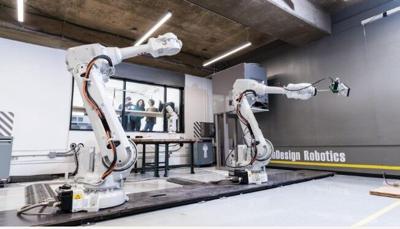
Advanced Research & Innovation Lab at the University of Pennsylvania
PHILADELPHIA – The University of Pennsylvania has defeated a lawsuit against it brought by a former employee who was harassed by a student, as a federal judge found the remedy put in place by the school was adequate.
Judge Mark Kearney last week ruled for UPenn, whose victory gave it a measure of relief during a troubling Halloween in which a hacker sent alumni an email decrying the university as “elitist” and “woke.”
In the case of Sophia O’Neill, Kearney ruled against a claim of constructive discharge after the school put a plan in place to keep a male student known as H.R. from her, but she never returned to work.
“The University removed H.R. from the Robotics lab the same day (of her complaint), put a safety plan in place for Ms. O’Neill, and warned H.R. he could be subject to disciplinary proceedings if he violated the plan,” Kearney said.
“A reasonable jury could not find the University ‘knowingly permitted’ H.R. to harass Ms. O’Neill.”
O’Neill became a teaching assistant in fall 2022 in the robotics lab, where H.R.’s “aggressive” conduct prompted eight student complaints. The following February, he’d set his sights on O’Neill, her suit says, standing over her desk after a work happy hour and demanding answers for an upcoming assignment.
On Feb. 22, 2023, she returned to work to find several messages H.R. had sent her on Discord in recent days. He’d apparently been suffering a psychotic episode during which he told O’Neill he loved her and wanted her to come stay with him.
It was the first time he’d expressed romantic feelings for O’Neill, and she reported him to supervisors. He was removed from the lab a couple of hours later.
A safety plan prohibited H.R. from using the lab while O’Neill was there and prevented him from speaking to her outside of an academic setting. But O’Neill wanted more, like an assurance she would never have to interact with H.R.
UPenn told her to return to work by March 27, 2023. On March 5, H.R. posted on Instagram his disappointment that O’Neill reported him. She filed a complaint with the Philadelphia Commission on Human Relations on May 5 and began looking for her job.
Her claim that a reference from UPenn sold her out during the process of finding work was contradicted by evidence, Kearney said. He also rejected claims UPenn created a sex-based hostile work environment.
She had argued UPenn knew or should have known H.R. was a threat based on the previous student complaints, but the only female to file one said she could not describe his behavior as sex-based.
“H.R. verbally agreed to follow the safety plan,” Kearney wrote. “Ms. O’Neill wanted more.
“She demanded the University prevent H.R. from accessing the Robotics Lab even when she was not working. But an employee ‘cannot object to’ the remedy the employer chooses ‘if the remedy chosen… is adequate’ or ‘dictate that the employer select a certain remedial action.’”
Jeffrey Sturgeon and others at Paul Hastings LLP represented UPenn. O’Neill was represented by Julie Uebler of Uebler Law in Malvern.








